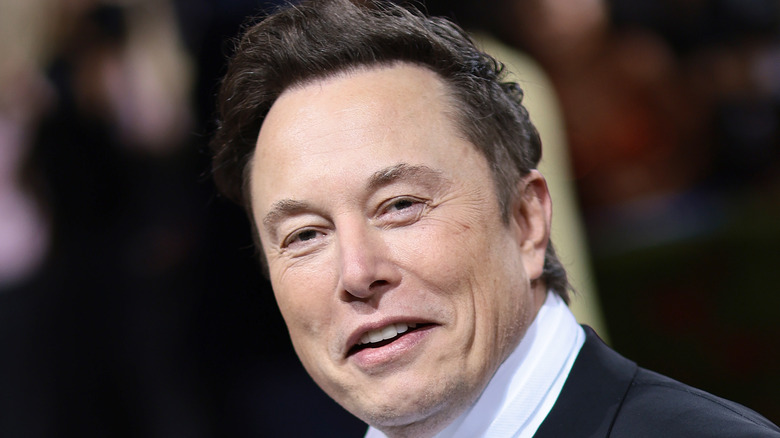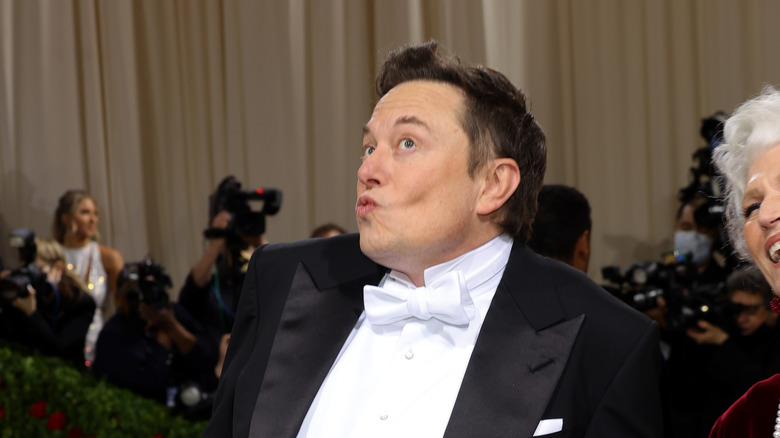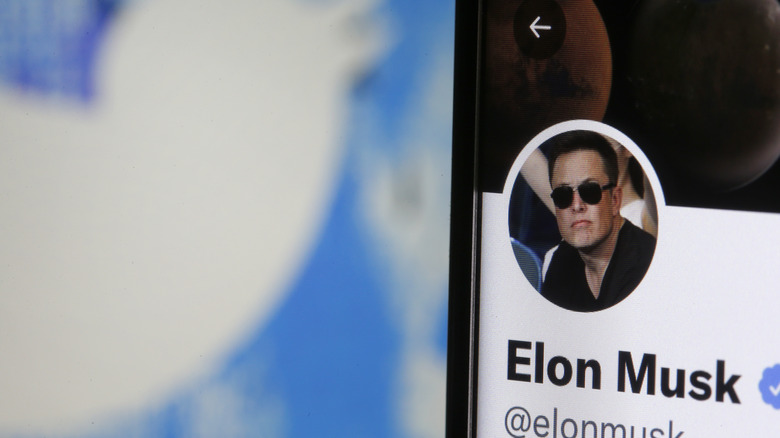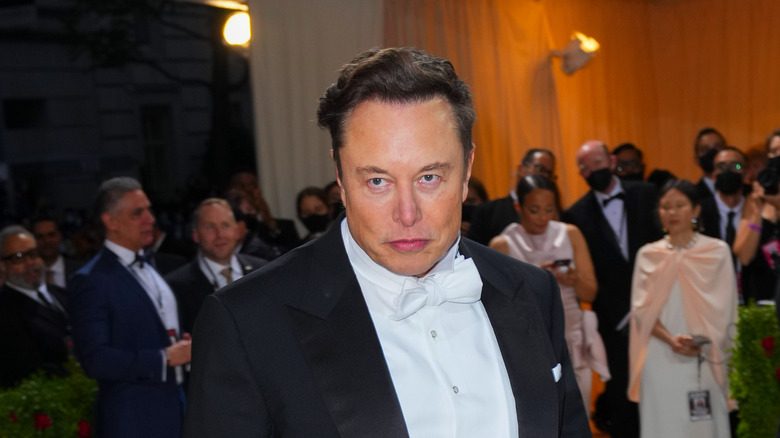Why Twitter Shareholders Are Coming After Elon Musk
Elon Musk's Twitter saga has taken another interesting turn, this time in the form of a lawsuit filed on behalf of investors who allege Musk manipulated the market for his own gain by not disclosing his stake in the company in due time. The lawsuit, which seeks class-action status, traces the entire history of the acquisition spanning from when Musk first disclosed the first round of Twitter stock purchases all the way up to his scathing criticism of the platform, its policies, executives, and many things in between.
Filed by investor William Heresniak before the U.S. District Court for the Northern District of California, the lawsuit states that he is acting on behalf of "himself and all others similarly situated." However, this is not the first lawsuit Musk is facing in the wake of his blockbuster Twitter deal. In April, another Twitter shareholder filed a class-action lawsuit over his delayed disclosure of purchasing a stake in Twitter.
The past couple of weeks have a been whirlwind ride for investors as well as Twitter employees, with Musk leading the charge with his tweets. Aside from high-profile departures from the company and unrest among employees over the acquisition, Musk's tweets haven't given any quarter to Twitter either. Adding more fuel to the fire, Musk is now facing another lawsuit over his conduct.
What's the legal fuss?
The lawsuit, a copy of which was shared by The Verge, argues that Musk bagged himself a benefit of $156 million by not filing a declaration form about his Twitter stake in due time. That, the lawsuit claims, amounts to market manipulation under the California Corporation Code, an act that reportedly cost Twitter $5 billion in its market valuation. To recall, Musk only filed a Schedule 13G form after his stake in Twitter went beyond 5%, something that caused a surge in Twitter's stock price by as much as 25%, which means he may have continued to buy more stock at a lowered price before the rise happened.
Musk is also accused of using shady tactics to somehow undervalue the deal's final price. Musk has recently targeted Twitter for a variety of reasons, ranging from policy enforcement that allegedly encroaches upon free speech to a serious bot problem. Critics have argued that Musk is trying to undervalue the deal's price by claiming that he was misled about Twitter's problems, and Musk himself has made it clear that he isn't averse to lowering the financial terms of the deal.
The lawsuit alleges that these tactics are a way to bring down the market value of Twitter, something that Musk can use to back out of the deal, despite the fact such conduct may be illegal and in violation of California's corporate laws. Musk's move has had a negative impact on Tesla's stock, as well, which, at the time of writing, was trading for around $40, much lower than the agreed deal price of $54.20 per stock (via Reuters).
What does it mean for Musk?
Wall Street experts and analysts have repeatedly raised concerns about Musk's ability and willingness to complete the deal and how his behavior may impact the future of Tesla. The automaker's stock fell by roughly 35% at the time of writing following the Twitter takeover announcement and the company was recently booted off the S&P Global's 500 ESG list, too.
Tesla's fortunes were, at one point, intrinsic to the deal. Musk looked into taking out multi-billion-dollar loans against his Tesla stake, and following the crash in Tesla's stock price, banking institutions were concerned over whether the deal would prove to be a profitable venture for them, if at all. As pointed out by The New York Times, Musk would have had to pay the entire loan amount if the price of Tesla stock fell 40 percent or more below its value on the day that the loan was secured. Musk has since dropped the Tesla loan plan and instead has pledged an additional $6 billion toward his anticipated Twitter acquisition (via SEC).
That financial aspect aside, some Tesla investors are worried Musk might get distracted from his Tesla obligations once the Twitter deal has gone through. Musk, on the other hand, has assured that Tesla remains his top priority. Beyond that, there are concerns that Musk's inexperience in running a social media platform might end up driving Twitter to the ground. Activists are also on edge over whether Musk's approach to content moderation, policy enforcement, and his "free speech absolutist" stance might also end up undoing years' worth of progress.
What the lawsuit seeks
The lawsuit, which comes on behalf of Twitter shareholders and also lists Twitter as a defendant, seeks to get class-action status. A crucial point of contention in the lawsuit is that Musk signed a binding contract to buy Twitter at the agreed price of $54.20 per share, but has since made statements claiming that the deal was on hold and that the buyout couldn't go forward owing to an unprecedented bot and fake accounts problem. As part of the lawsuit, the plaintiff has invoked Section 25402, requesting the court to order an investigation into Musk's recent activities.
Moreover, the lawsuit wants Musk to distance himself from the alleged "monies and benefits he unjustly acquired through his false statements, market manipulation, and other improper conduct." With the anticipatory class-action status coming into the picture, the lawsuit wants the billionaire to pay damages to the plaintiff (and all members of the class), aside from demanding the maximum punitive action against Musk as permissible by law — and, of course, the plaintiff seeks disbursements for the legal costs.
Getting a class-action status for a lawsuit is easier said than done and Twitter, meanwhile, continues to tumble. As reported by CNBC, some investors are dumping their Twitter shares as the stock price has fallen to $37.39, wiping all the gains it made in the past few weeks.



